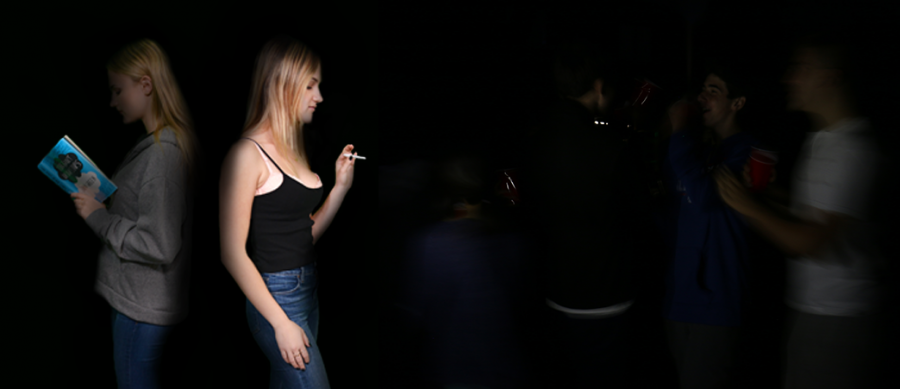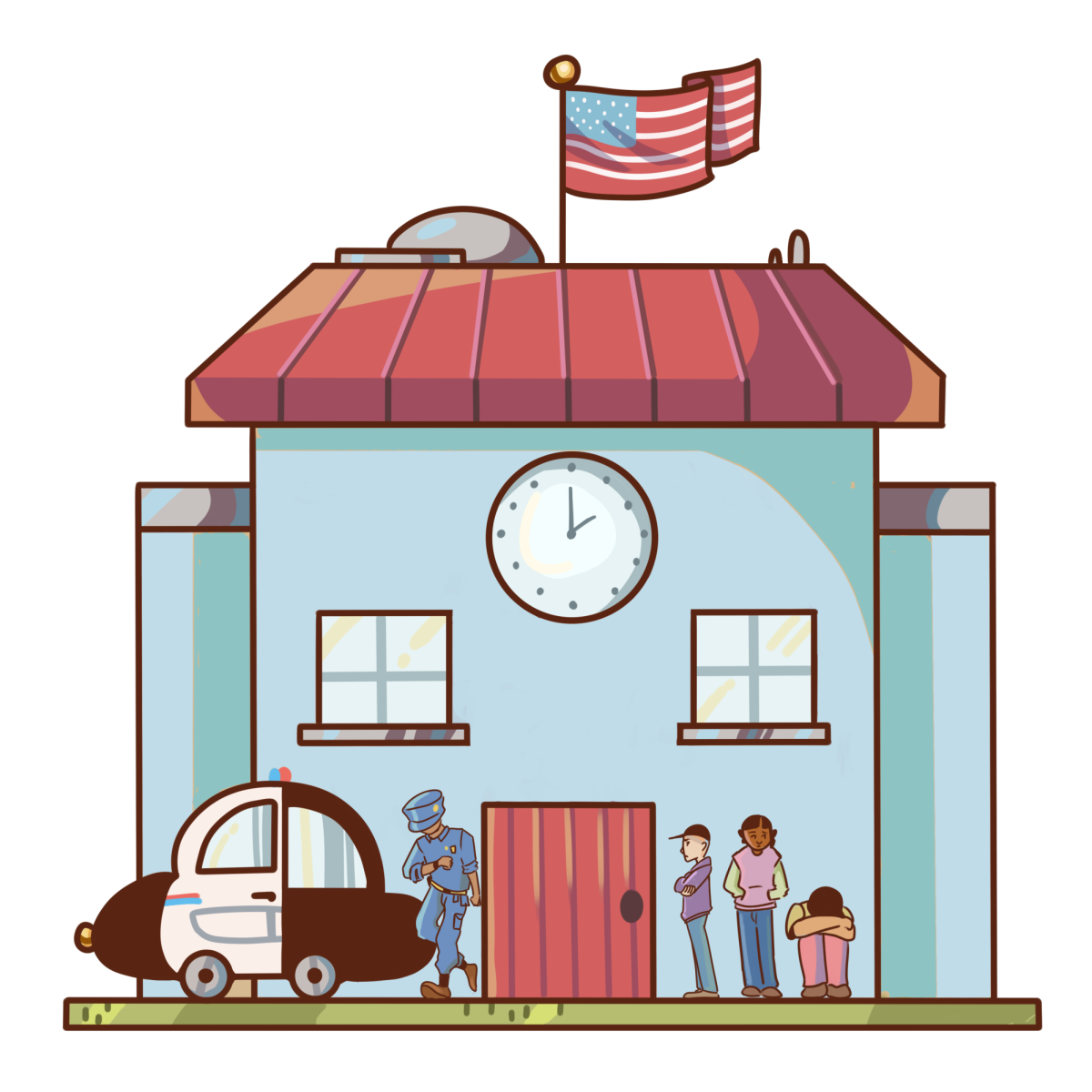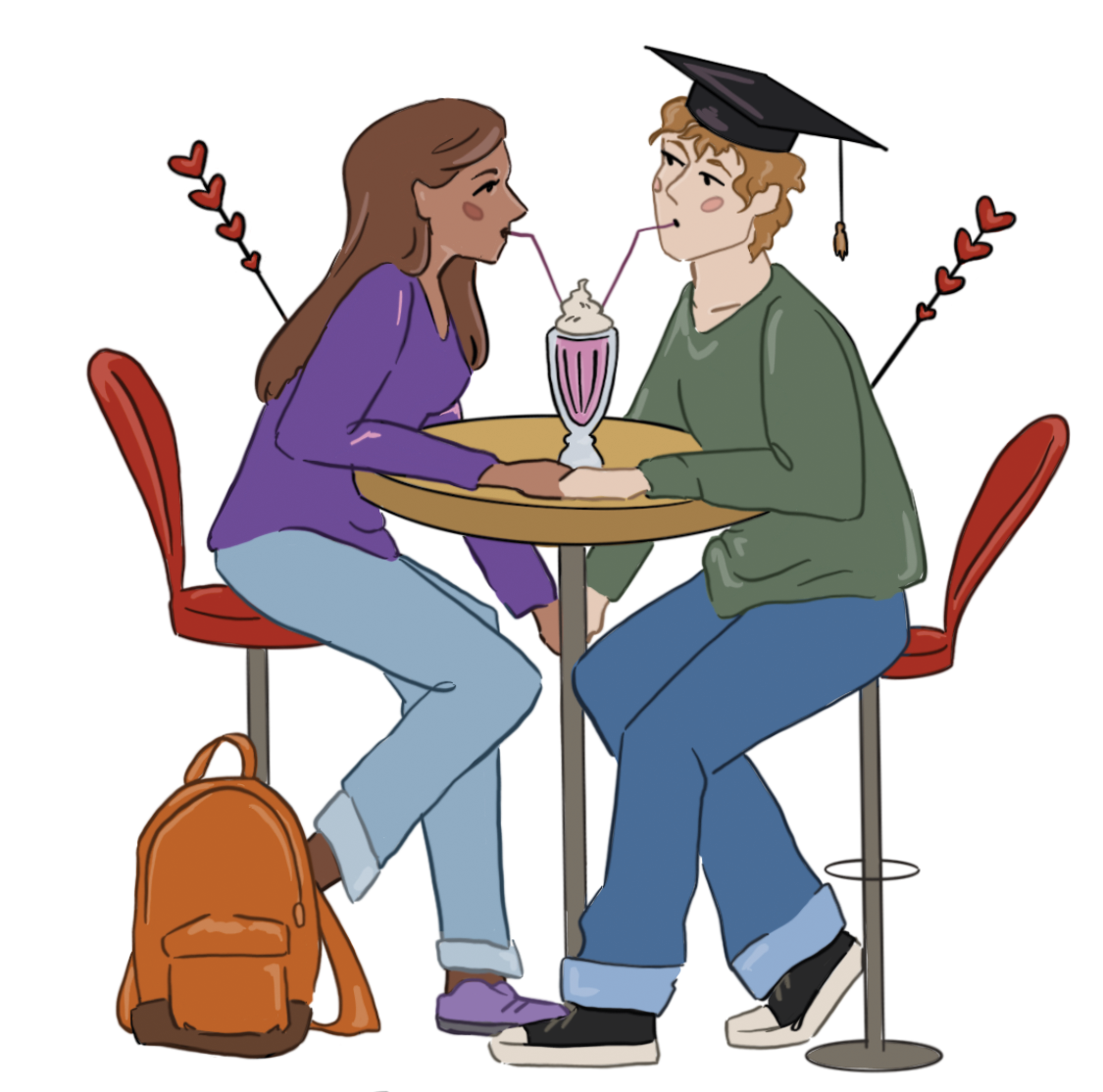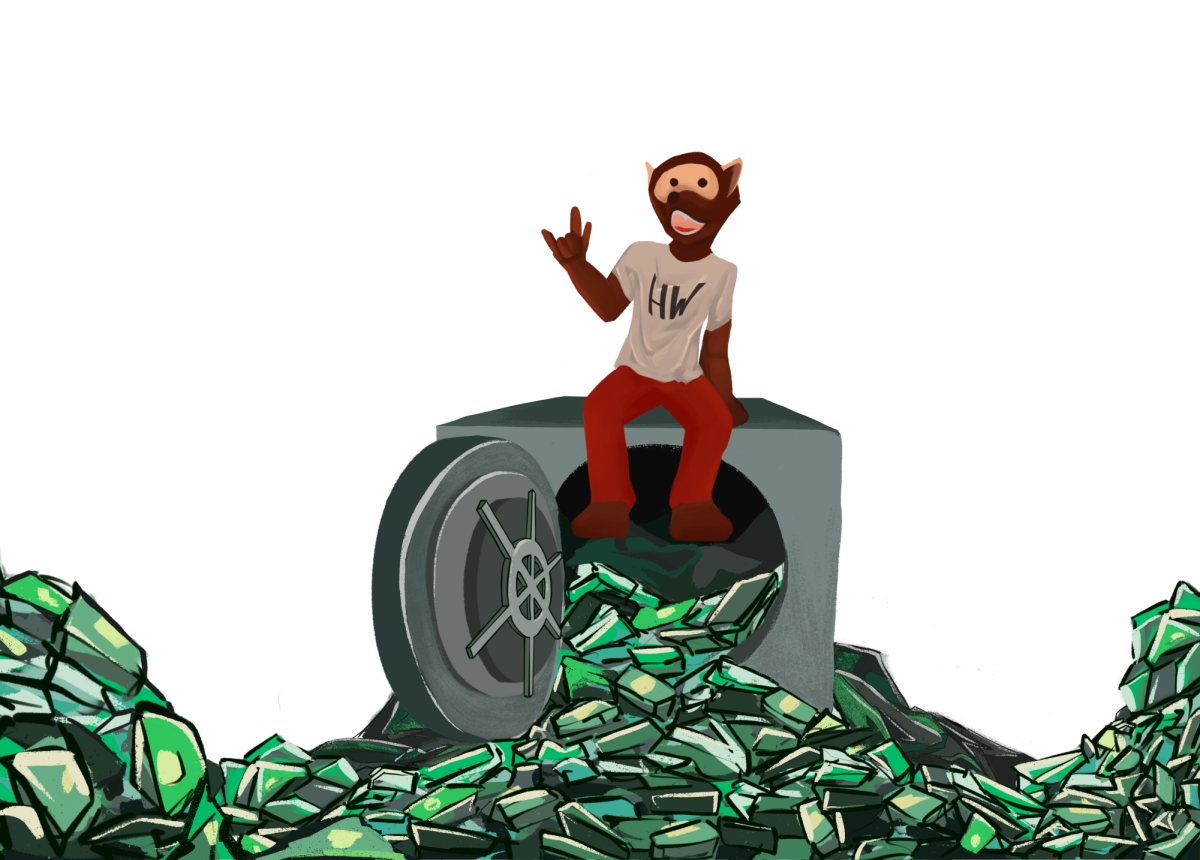It was only a matter of minutes before Olivia* ’19 lost track of her friends. She tried yelling their names above the blasting music and locating them among the sea of Red Solo Cups, but eventually gave up and retreated to a corner.
“I wasn’t really there to have fun anyway,” Olivia said. “I was [at the party] because that’s what my friends wanted to do.”
Olivia said she felt reluctant to attend the party, which was her first as an upper school student, but her friends convinced her to come by telling her it was the “cool” thing to do.
“People feel like parties are a much bigger deal and to be invited to one is considered a huge privilege, so I think people want to capitalize on it as much as possible,” Olivia said.
Although Olivia said she never felt pressured to do anything she was not comfortable with, she was surprised to see how many of her friends indulged in drugs or alcohol and how differently they acted. She remembered them speaking less coherently, walking aimlessly and sending text messages and snapchats with regrettable content.
Because she was one of the few sober people at the party, Olivia said she had to prioritize her friends’ safety over her own, ensuring that they continued to drink water and didn’t stray too far from her side.
“[Being exposed to substances] has been interesting just in the fact that I feel like it’s ruined a lot of friendships and made a lot of people concerned about their friends and their wellbeing,” she said.
Noting that substance use is more common at the Upper School because of the more prominent party scene, Olivia said she felt very unprepared for the social jump from ninth to tenth grade.
“It was definitely a shock, and I don’t really know if there’s any way to address that,” Olivia said. “I definitely think my grade has had to mature really quickly to kind of catch up to where everyone else on this campus is.”
According to the National Institute on Drug Abuse, the percentage of students who drank alcohol in the past month increases from 9.7 percent to 21.5 percent between eighth and tenth grade, and past-month use of marijuana increases from 6.5 percent to 14.8 percent.
Out of 358 Harvard-Westlake students polled, 77.9 percent said they were exposed to more substances at the Upper School than they were at the Middle School.
Seventy-two percent said it is more difficult to balance their social and academic lives as sophomores than it was as freshmen.
Upper School Psychologist Kavita Ajmere attributed the change in exposure to substances to the shift in the social network between ninth and tenth graders.
“When you’re in ninth grade, you’re at the top of the totem pole in the Middle School, and then when you come to the Upper School, you have to start that ladder all over again,” Ajmere said. “I also think that tenth grade may be the first time people are actually going to parties. That might be their first entry into any kind of drugs or alcohol.”
However, Ajmere said she is not concerned about students’ social lives interfering with their academic lives because Harvard-Westlake students value their schoolwork. Classes such as Choices and Challenges also spark conversation on campus and inform students about the consequences of substance abuse.
“It wouldn’t be uncommon for a high school student to experiment with something,” Ajmere said. “I think that’s part of natural development, but I also think that students see the dangers of abuse when it comes to drugs and alcohol. And it’s not just about becoming an addict, but it’s also about their futures, their lives, their health. Part of a complete education is not just about academics, but it’s also about character and about life and about mental health and about being a good person.”
Ethan* ’18 said he couldn’t escape the exposure to alcohol or marijuana as a sophomore because they were accessible at almost every social gathering that was not school-affiliated. This transition, he said, was more intense than he had anticipated, and it began to affect the way he approached his social life, thinking he could only have fun if he was under the influence.
“At first it was hard to adjust because at the Middle School you’re so sheltered, and you’re not really exposed to this sort of thing, so you don’t really know how to control yourself,” Ethan said. “But eventually you tend to catch on pretty quickly what your limitations are.”
Even if he wasn’t particularly enthusiastic about using substances, Ethan said it just became a normal part of his social experiences at the Upper School, and eventually he didn’t even notice the presence of substances at parties.
“I just expect substances to be involved at every party,” Ethan said. “They play a much bigger role at the Upper School than the Middle School.”
While Ethan said he felt unsettled by the exposure to substances as one of the youngest students on campus, Lily* ’19 said she credits what she described as her “smooth transition” to the Upper School to the age gap between the sophomores and the upperclassmen.
“I was really intimidated at my first party,” Lily said. “Having everyone be older than you is really overwhelming, but it also forces you to know your limits because you don’t want to be the sophomore that flips out or messes everything up, so I think that forces you to know your limits and hold back a little bit and relax.”
Having older students present who have more experience, Lily said, sets a precedence for the incoming sophomores. Similarly, being a younger sibling, Jack Nordstrom ’19 said having an older sister to look up to aided his social transition from freshman year to sophomore year.
“My sister really included me in all of her experiences that happened at the Upper School, so I knew what was going to happen, and it wasn’t a surprise to me,” Nordstrom said. “I never really do any substances — don’t feel the need to — but I’m also able to still socialize on the weekends because there are others who also don’t partake.”
Upper School Dean Sharon Cuseo enforced the importance of empowering sophomores and instilling in them a sense of self-confidence to combat social pressures so those students who don’t feel comfortable with exposure to substances don’t feel like they have no other options.
“You shouldn’t be in a situation where you can’t make a decision that feels right to you, and I think that unfortunately that’s what happens because I think sophomores feel that they aren’t able to do that,” Cuseo said. “Students come to me trying to find their lane and reassurance that it exists. They’re exposed to big parties, and then they need to find their own because I think that through social media everyone’s aware of the big events, and then they don’t realize that there are other options.”
*Names have been changed.







































